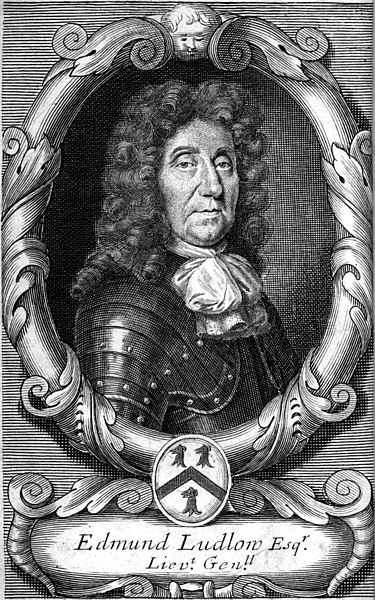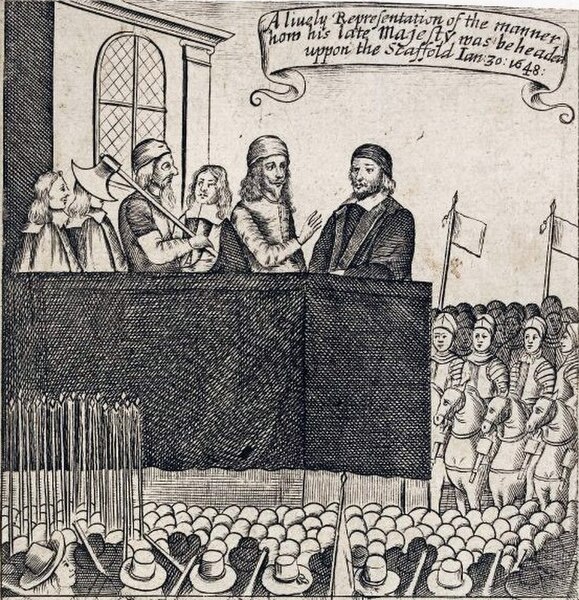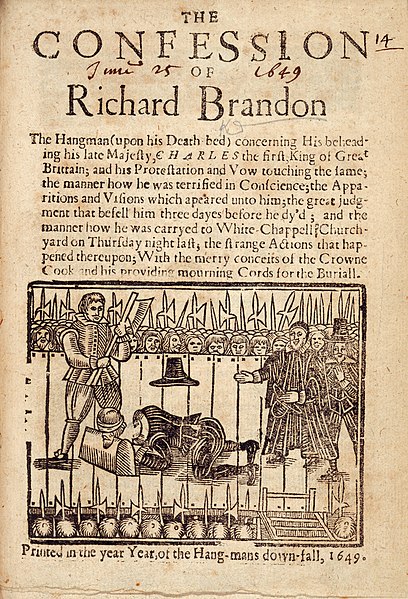Edmund Ludlow was an English parliamentarian, best known for his involvement in the execution of Charles I, and for his Memoirs, which were published posthumously in a rewritten form and which have become a major source for historians of the Wars of the Three Kingdoms. Ludlow was elected a Member of the Long Parliament and served in the Parliamentary armies during the English Civil Wars. After the establishment of the Commonwealth in 1649 he was made second-in-command of Parliament's forces in Ireland, before breaking with Oliver Cromwell over the establishment of the Protectorate. After the Restoration Ludlow went into exile in Switzerland, where he spent much of the rest of his life. Ludlow himself spelt his name Ludlowe.
Edmund Ludlow
Charles I, the king of England, Scotland, and Ireland, was executed on Tuesday, 30 January 1649 outside the Banqueting House on Whitehall, London. The execution, carried out by beheading the king, was the culmination of political and military conflicts between the royalists and the parliamentarians in England during the English Civil War, leading to the capture and trial of Charles. On Saturday 27 January 1649, the parliamentarian High Court of Justice had declared Charles guilty of attempting to "uphold in himself an unlimited and tyrannical power to rule according to his will, and to overthrow the rights and liberties of the people" and he was sentenced to death by beheading.
Contemporary German print of the execution of Charles I outside the Banqueting House. Based on the earliest European depiction of the execution.
A Lively Representation of the Manner how his late Majesty was Beheaded upon the Scaffold, a Restoration print of Charles making his speech upon the scaffold.
The title page of The Confession of Richard Brandon, a 1649 pamphlet claiming to reveal Richard Brandon as Charles I's executioner.
Anonymous Dutch painting of the execution of Charles I, 1649. While depictions of the execution were suppressed in England, European depictions like this were produced, emphasizing the shock of the crowd with fainting women and bloodied streets.





